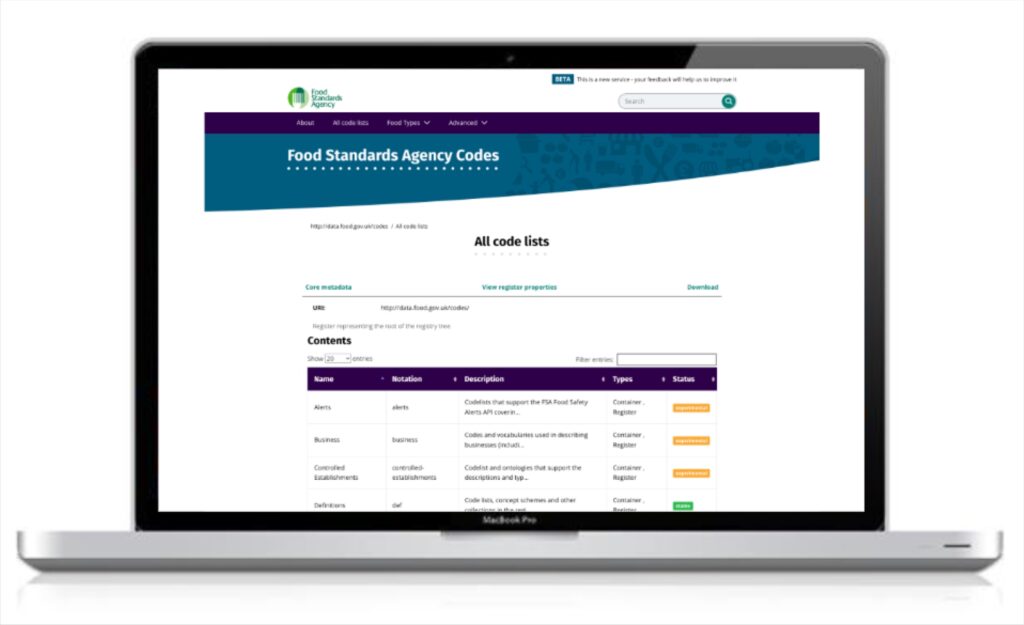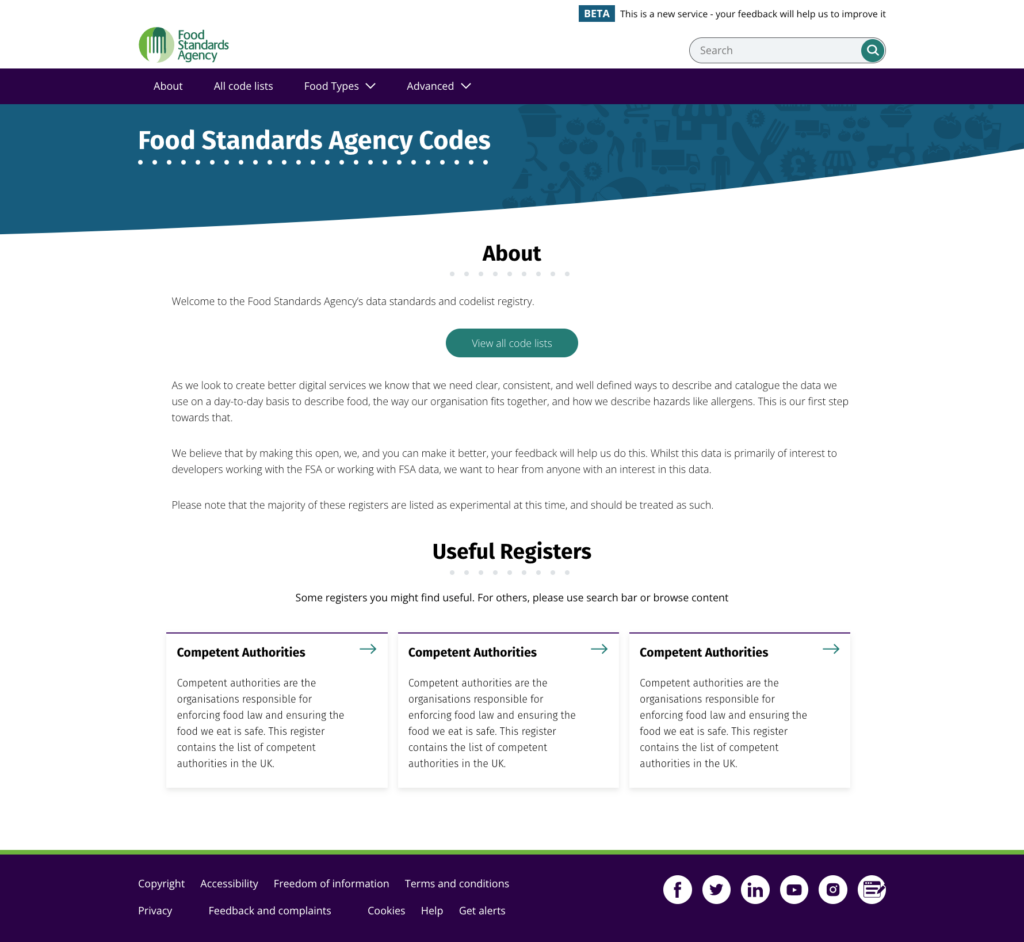Challenge
To work with Food Standards Agency (FSA) to develop, build and host a service to enable them to create, maintain and provide access to codelists, controlled vocabularies and similar reference data (registers) used by the FSA in their data and systems.
Background

The Food Standards Agency (FSA), like many organisations, and in particular public bodies, manages and maintains a growing set of reference data – that is standardised terms used to identify “things” in the data – things such as codes, spatial objects, units of measure, substances, methodologies, organisations and general vocabulary elements. Most datasets make use of such identifiers and to interpret the data safely and consistently so that we know what they mean. FSA uses these to support its own activities and also support a broader ecosystem of Local Authorities and other actors that provide and exchange data related to food and feed safety.
Reference data is also a key enabler for shareable, reusable open data and plays a vital role in creating effective data ecosystems, in which data can be more readily, consistently and rigorously reused, across data systems and services. They are a foundational element of the interoperable nature of Linked Data and more recently also of the FAIR Data Principles (i.e. that data should be Findable, Accessible, Interoperable, and Reusable), that are increasingly being take up by academic, and public and private sectors.
FSA’s controlled vocabularies, include:
- Alerts – Codelists that support the FSA Food Safety Alerts API covering Allergy Alerts (AA), Product Recall Information Notices (PRIN) and Food Alerts For Action (FAFA) and the definitions of the controlled codes that are used to represent allergens, pathogen risks and the various problem classifications (hazards, reasons)
- Codes and vocabularies used in describing businesses (including Food Businesses and other establishments)
- Categories of Food Establishment – codes and vocabularies used in describing businesses (including Food Businesses and other establishments)
- Food Types – identifiers, supporting codes and vocabularies based on the EFSA FoodEx2 that are being tested in the development of the FSA’s code and data standards repository.
- Geographies – Key Geography codelists and ontologies used by the FSA
- Competent Authorities – Local Authorities and other competent authorities involved in the food and feed regulatory ecosystem.
These, and others, are used as the basis for a number of internal and externally linked data systems,, for example the list of Allergens for which there are food safety alerts.
Process
We have previously worked as part of the UK Government Linked Data Working Group to develop Open Source Epimorphics Reference Data Management Platform (Registry). At its heart, it is an open source implementation of the Linked Data Registry specification.

We worked with the FSA to create an implementation of UKGovLD registry Open Source software focused on the FSA needs. The food.gov.uk/codes service is a public facing website application that provides access to the managed codelists and similar reference data (registers) used by the FSA in their data and other applications. It provides data through codelists and registers in 4 or 5 star linked data form with persistent resolvable identifiers meeting the UK Government Standards Board standard for HTTP URIs. It also supports the provision of that data through alternative formats (CSV, JSON, TTL, etc.) and via an API (Application Programming Interface). The service underpins other services across the FSA data estate, and some of the codelists (registers) are used more widely.

